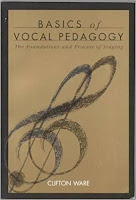"Students should be forewarned that even the most patient, enjoy-the-process approach inevitably will include learning plateaus, which are periods when little or nothing appears to be happening. Fortunately, frustration can be avoided and long-lasting results achieved by using plateaus as learning time for consolidating and internalizing muscular and mental responses through purposeful repetitious practice." (24)
Call it a plateau, call it stagnation, call it a rut. Regardless, we all know what it's like to be working hard but hardly seeing any noticeable progress. This can be a real de-motivator.
In these times it can be helpful to remember our previous discussions of the three stages of motor learning. The middle associative/motor learning stage, which is between the beginning verbal/cognitive stage and the final automatic stage, is usually the longest period of the entire learning process. It requires the most focus, the most mental effort, and the most time (which may be measured in years, depending on the skill). It's just a part of learning to go through long plateaus of seemingly minimal progress.
It's also worth defining what a plateau really is. The Oxford English Dictionary defines the word as, "a state of little or no change following a period of activity or progress." Been there.
But there is also a second definition of plateau: "an area of relatively level high ground." This definition reminds me of the gorgeous sandstone formations of southern Utah. If you've never done any hiking in Utah's red rock country, you should probably skip school and get down there right away. (I mean, you probably shouldn't skip school. Or...maybe you should.) If you have hiked up to one of these plateaus, you know how much uphill trudging it can take just to get to the level ground. Simply reaching the plateau is an accomplishment in and of itself, one usually rewarded by stunning views.
When we have plateaued in our technical or artistic development, it's easy to forget how much time, effort, and practice it took to get to that point. It's good to look back during these times to see how far you've come and maybe just hang out a while and get used to this new "high ground."
Lastly, although we often measure our progress through specific achievements, during the inevitable plateaus, we can shift our goals more toward the amount of time we log working on our skills. If you aren't able to note obvious gains, then celebrate consistently showing up to practice and putting your time in.
You don't have to set a land speed record every time you go out for a run. But if you keep lacing up your shoes and getting out there day after day, you are much more likely to reach your goals than if you allow the frustration of a lack of progress derail you from the regularity of your routine.
Now go practice.



